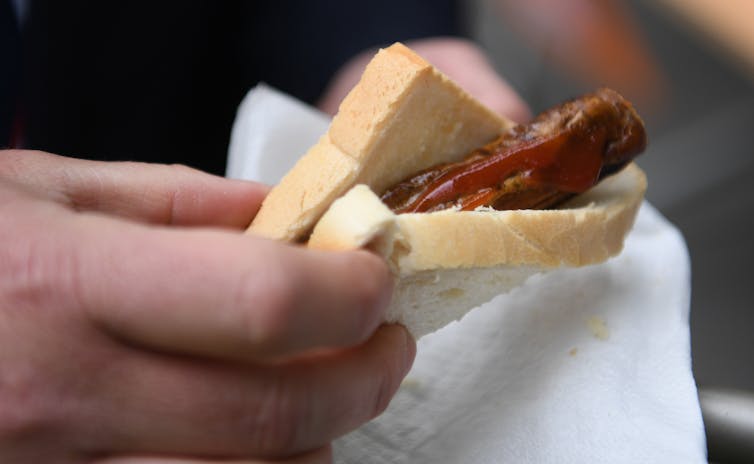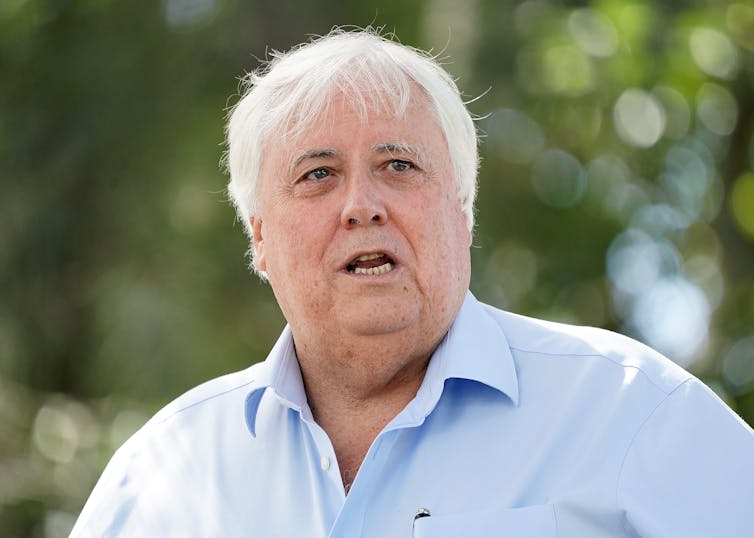Remember Quexit? 5 reasons you should not take your eyes off the Queensland election
- Written by The Conversation
Queensland is stereotyped for its sunshine, beaches, lack of daylight saving, Bundy rum, meter maids[1] and One Nation supporters[2].
Many Australians have an ambivalent relationship with the state and don’t take its politics[3] that seriously.
But after Queensland “lost[4]” the federal election for Labor last year, there are good reasons to care about the state election on October 31.
With the campaign now officially underway[5], this isn’t just another state poll, either. We outline five reasons why voters — and those beyond Queensland — should be paying close attention.
1. Quexit was misguided
Despite widespread predictions the Labor Party would win the May 2019 federal election, the Coalition had a “miracle[6]” victory, thanks – in part – to Queensland[7].
“How good’s Queensland?” Prime Minister Scott Morrison exclaimed on election night[8], with Liberal supporters chanting, “Queensland, Queensland” in reply.
But on social media, those disappointed with the election result wanted to cut Queensland loose[9] from the rest of the country. A “Quexit” hashtag started to trend.
The whole episode proved we need a better understanding[10] of the needs and interests of all Australians.
Without checking Queensland’s temperature, we miss vital information that has a bearing on the whole country. For those watching along at home: you need to win Queensland to win federally.
2. There is more than one Queensland
To understand Queensland, we need to understand its diversity. This is the only state to have the majority of residents in rural or regional areas. So, it is not just about what happens in Brisbane.
As one example, Queensland’s largest electorate, Gregory[11], covers about 460,000 square kilometres. So even within regional areas, the interests and issues are different.
Griffith University experts on the seats to watch in the 2020 Queensland election.Queensland is also a state that experiences frequent natural disasters[12]. This, coupled with economic reliance on beef, gold, sugar, coal and gas industries, can place disparate Queensland communities on the edge[13].
In the 2020 election, the top seats to watch[14] are around Townsville[15], Rockhampton[16] and the coast, with an eye on some inner-city Brisbane electorates and wild card seats, given the recent resignation of three Labor ministers[17].
3. Pandemic politics
While the Northern Territory went to the polls in late August[18] and the ACT will vote on October 17, Queensland’s will be the most significant election in Australia since the start of COVID-19.
This will give us several clues about the impact coronavirus will have on campaigns and voting, which could affect future elections in Australia.
We are expecting postal votes will be significant in the October 31 decision, with an estimated 600,000[19] Queenslanders predicted to vote this way. Many people are also expected to pre-poll to avoid the crowds.
 COVID-19 has led to concerns about election day sausage sizzles.
Julian Smith/AAP
COVID-19 has led to concerns about election day sausage sizzles.
Julian Smith/AAP
This has significant ramifications on the campaign itself. When will political parties release their major policies, if huge chunks of the population have already voted well before polling day? With so many postal votes, will we have a result on election night?
We are also set to see a drop in door-knock campaigning, less reliance on paper how-to-vote cards and question marks over the election day democracy sausage[20]. What will this do to people’s engagement with the voting process?
The COVID crisis also means attention is essentially focused[21] on Premier Annastacia Palaszczuk and her challenger, LNP leader Deb Frecklington. This will increase the “presidential” nature of the contest, exacerbating an increasing trend[22] in Australian elections.
It is also worth noting, this is the first contest between two female leaders at a state or federal election in Australian history.
4. What are the minor parties up to?
The preferences[23] of three minor parties — Katter’s Australian Party, Pauline Hanson’s One Nation and North Queensland First[24] — are set to play an important role in battleground North Queensland seats.
With predictions of a hung parliament[25] and the importance of preference flows[26], we should be keeping a close eye on their campaigns.
Read more: Queensland's unpredictable election begins. Expect a close campaign focused on 3 questions[27]
The role of Clive Palmer’s United Australia Party looks less certain.
Palmer’s Mineralogy company donated almost $84 million[28] to the United Australia Party campaign in the last federal election. This was the biggest individual spending spree in Australian political history, resulting in a very visible campaign, without winning any seats.
However, Palmer still had an impact, with his anti-Labor campaigning[29] perhaps partly responsible for swinging votes away from the ALP.
In this year’s state election, Palmer will be restricted by new electoral spending caps[30]. But it’s the pattern of spending that is really interesting.
 Clive Palmer’s election spending will be capped this time around.
Dave Hunt/ AAP
Clive Palmer’s election spending will be capped this time around.
Dave Hunt/ AAP
Throughout the Queensland middle — the dry belts of land west of the Great Dividing range out to the fringes of the Channel Country — populist campaign messages dominate via bright billboards[31].
Their message may be simple — like the “Simon says” equivalent “Clive says… give Labor THE BOOT[32]” — but they are also targeted. In many cases, they are the only messaging (and real political attention) these regions receive.
5. Tough questions that go beyond Queensland
Queensland is dealing with its fair share of local issues[33]. But it is also grappling with policy questions that resonate around the country.
These include how to recover from the COVID recession[34] and how to capture young voters who have been hit hard[35] by the economic downturn.
Queensland also needs to transform its tourism industry[36] in the face of both public health and environmental challenges.
And it needs to tackle climate change and transform[37] “fossil” industries into new opportunities for employees and businesses.
Read more: Matt Canavan says Australia doesn't subsidise the fossil fuel industry, an expert says it does[38]
Meanwhile, Southeast Queensland has its 2032 Olympic bid[39] bubbling away in the background.
Queensland issues are Australian issues — and a harbinger of what’s to come.
References
- ^ meter maids (theconversation.com)
- ^ One Nation supporters (www.abc.net.au)
- ^ its politics (www.bbc.com)
- ^ lost (www.theguardian.com)
- ^ now officially underway (www.abc.net.au)
- ^ miracle (www.abc.net.au)
- ^ Queensland (www.abc.net.au)
- ^ exclaimed on election night (www.sbs.com.au)
- ^ cut Queensland loose (junkee.com)
- ^ a better understanding (theconversation.com)
- ^ Gregory (www.abc.net.au)
- ^ natural disasters (theconversation.com)
- ^ on the edge (www.abc.net.au)
- ^ top seats to watch (www.youtube.com)
- ^ Townsville (www.abc.net.au)
- ^ Rockhampton (www.thechronicle.com.au)
- ^ three Labor ministers (www.brisbanetimes.com.au)
- ^ polls in late August (theconversation.com)
- ^ estimated 600,000 (www.abc.net.au)
- ^ democracy sausage (www.brisbanetimes.com.au)
- ^ essentially focused (www.abc.net.au)
- ^ increasing trend (www.lowyinstitute.org)
- ^ preferences (medium.com)
- ^ North Queensland First (www.northqueenslandregister.com.au)
- ^ hung parliament (www.facebook.com)
- ^ preference flows (www.brisbanetimes.com.au)
- ^ Queensland's unpredictable election begins. Expect a close campaign focused on 3 questions (theconversation.com)
- ^ donated almost $84 million (theconversation.com)
- ^ anti-Labor campaigning (www.thesaturdaypaper.com.au)
- ^ electoral spending caps (www.abc.net.au)
- ^ billboards (9now.nine.com.au)
- ^ Clive says… give Labor THE BOOT (www.theaustralian.com.au)
- ^ local issues (www.abc.net.au)
- ^ COVID recession (www.brisbanetimes.com.au)
- ^ hit hard (pursuit.unimelb.edu.au)
- ^ tourism industry (www.abc.net.au)
- ^ transform (www.abc.net.au)
- ^ Matt Canavan says Australia doesn't subsidise the fossil fuel industry, an expert says it does (theconversation.com)
- ^ 2032 Olympic bid (www.abc.net.au)

















